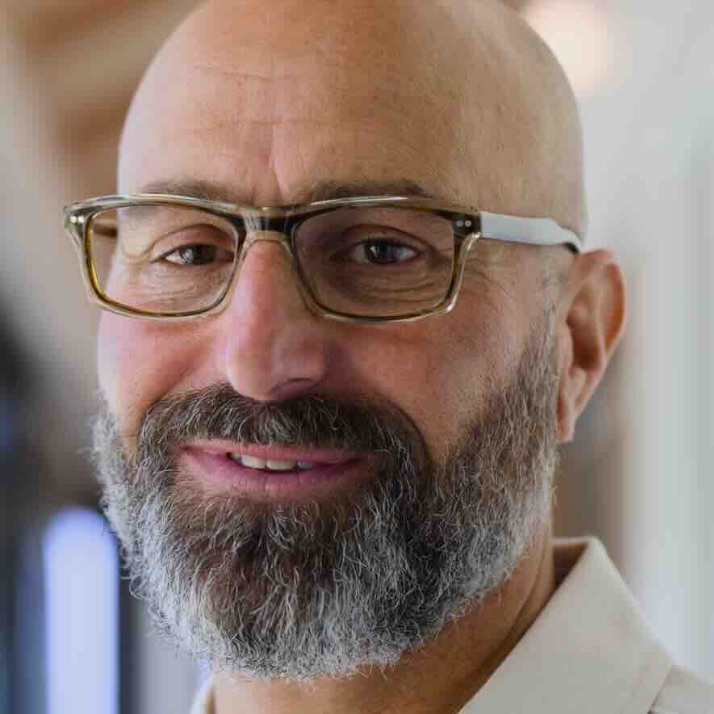Starting Your Personality Disorders Therapy Journey in Charlotte
Charlotte offers a large and diverse pool of clinicians experienced in personality disorders, from Uptown and South End to Myers Park and University City. Start by using MiResource’s directory to search specifically within Charlotte and nearby suburbs, so you can compare options close to home or work. You can browse verified profiles, read clinician specialties, and see who lists experience with borderline, narcissistic, avoidant, or obsessive-compulsive personality features. This local-first approach helps you quickly spot providers aligned with your needs and the city’s pace.
MiResource’s filters let you narrow results by therapy approach (DBT, schema therapy, MBT, CBT), insurance accepted, language, identity-affirming care, virtual vs. in-person, and real-time availability. You can also filter by sliding-scale fees, evening/weekend hours, and clinician credentials to fit your budget and schedule. These tools streamline the search so you spend less time calling around and more time connecting with therapists who actually have openings. Once you identify matches, you can reach out directly or request a consultation through listed contact options.
Finding a therapist in Charlotte improves accessibility for regular sessions, reduces commute stress on I‑77 and I‑85 corridors, and increases flexibility for rescheduling. Local clinicians are more attuned to regional resources like Atrium Health, Novant Health, and community DBT skills groups for adjunct support. Cultural fit also improves when a provider understands Charlotte’s blend of Southern traditions, rapid growth, and diverse neighborhoods. Combining local insight with MiResource’s targeted filters increases the chances of a strong therapeutic match and sustained progress.
Mental Health Resources for Personality Disorders in Charlotte
If you or a loved one is living with a personality disorder in Charlotte, help is available—from urgent crisis response to therapy, skills groups, and family education. Use the resources below to find immediate support, public programs, peer groups, and local clinics. You can also use MiResource to find licensed Personality Disorders therapists in Charlotte who fit your needs.
Emergency & Crisis
- Call 911 for life-threatening emergencies.
- Call/text 988 for the Suicide & Crisis Lifeline (24/7).
- Atrium Health Carolinas Medical Center (Emergency Department)
- Novant Health Presbyterian Medical Center (Emergency Department)
- Atrium Health Behavioral Health Charlotte (24/7 assessment and treatment)
Public & City Programs
- Alliance Health (Mecklenburg County LME/MCO; 24/7 Access and Information Line 800-510-9132)
- Mecklenburg County Behavioral Health Resources (county services and links to care)
Nonprofits & Support Groups
- NAMI Charlotte (education classes, support groups for individuals and families)
- DBSA Charlotte (peer-led support for mood disorders; check for meeting times/locations)
- NEABPD Family Connections (skills/education for families affected by BPD; local and virtual options)
Health Systems & Universities
- Atrium Health Behavioral Health Care (outpatient therapy, DBT programs, inpatient/partial)
- Novant Health Behavioral Health (outpatient and inpatient services):
- UNC Charlotte CAPS (students only)
Community Clinics/Sliding-Scale
- Charlotte Community Health Clinic (FQHC; integrated behavioral health, Medicaid/sliding scale)
- C.W. Williams Community Health Center (FQHC; behavioral health services):
- Monarch – Mecklenburg County (outpatient mental health; Medicaid and uninsured options)
Use MiResource to search for licensed Personality Disorders therapists in Charlotte, including DBT-focused clinicians and culturally responsive care..
The Benefits of Seeing a Charlotte-Based Personality Disorders Therapist
Working with a Charlotte-based therapist who specializes in personality disorders offers tailored support grounded in local context—whether you live in South End, NoDa, Plaza Midwood, Dilworth, or commute from Ballantyne or University City. In-person sessions can be scheduled around uptown workdays or UNC Charlotte classes, with straightforward access via the LYNX Blue Line (e.g., 7th Street, 36th Street, JW Clay/UNC Charlotte stops) and CATS bus connections, plus plentiful surface parking at many clinics outside Uptown and validated garage options near Bank of America Stadium and Spectrum Center. Local cultural awareness—navigating game-day traffic, Charlotte Pride events, or community rhythms around Freedom Park—helps integrate skills like DBT into daily life and reduces barriers to consistent attendance.
A Charlotte specialist can also connect you to complementary resources that strengthen outcomes: Atrium Health Behavioral Health Charlotte (501 Billingsley Rd) and Novant Health Behavioral Health for coordinated care; Mental Health America of Central Carolinas for support groups and education ; and NAMI Charlotte for peer and family programs like Peer-to-Peer and Family-to-Family . For crisis support statewide, Mobile Crisis can be reached 24/7 at 1-866-275-9552. Therapists familiar with neighborhood dynamics (e.g., SouthPark daytime parking, Scaleybark or New Bern rail access) and community programs can streamline referrals, offer flexible scheduling (early morning or lunchtime sessions), and leverage local networks to reinforce therapy goals. Transit info: CATS/LYNX Blue Line details and system-wide routes at https://charlottenc.gov/.
Understanding Personality Disorders
Personality Disorders involve long-standing patterns in how someone thinks, feels, and relates to others that can make daily life, relationships, and emotions feel confusing or overwhelming. If you’re navigating Personality Disorders in Charlotte, know that many people experience intense mood shifts, sensitivity to rejection, or difficulties with trust and boundaries—and support is available.
About Personality Disorders
Personality disorders are patterns in how someone thinks, feels, and relates to others that can cause ongoing stress and make life feel harder. Common signs include intense emotions that are hard to manage, fear of being left out, trouble trusting others, or frequent conflicts in relationships and at work. These challenges can impact school, jobs, and daily routines, but with the right support in Charlotte, people can feel better and build healthier habits. Learn more at Personality Disorders page.
How Therapy Can Help with Personality Disorders
Therapy can help you understand patterns, build coping skills, and create healthier relationships, leading to a steadier, more fulfilling life in Charlotte. Evidence-based treatments like Dialectical Behavior Therapy (DBT), Mentalization-Based Therapy (MBT), Schema Therapy, and CBT can reduce emotional ups and downs, improve impulse control, and strengthen identity and self-worth. Working with a therapist provides practical strategies for emotion regulation, communication, and boundary-setting, which can lower crises and self-destructive behaviors. Together, you’ll set goals, practice new skills, and track progress so change feels achievable and sustainable.
Inside the Personality Disorders Therapy Process
In the first session, we’ll review your history, clarify goals, assess safety, and agree on a personalized plan and schedule; follow-ups focus on practicing skills, reviewing progress, and refining the plan together. We use evidence-based approaches for personality disorders—Dialectical Behavior Therapy (DBT), Schema Therapy, Mentalization-Based Therapy (MBT), and Transference-Focused Psychotherapy (TFP)—and tailor them to your needs. DBT builds emotion regulation, distress tolerance, and interpersonal effectiveness; Schema Therapy identifies and changes maladaptive schemas and modes; MBT strengthens the ability to understand your own and others’ mental states; and TFP uses the therapeutic relationship to integrate polarized views and improve self-control. Throughout, therapy is a collaborative effort with regular feedback, between-session practice, and adjustments over time, available in Charlotte.
Common Questions About Personality Disorders Therapy in Charlotte
1) How can I tell if I should see a Personality Disorders therapist?
If intense emotions, rapidly shifting moods, or unstable relationships are disrupting your daily life in Charlotte, it may be time to seek help for Personality Disorders. You might notice patterns like impulsive decisions, fear of abandonment, identity confusion, or feeling chronically empty. Frequent conflicts at work, school, or home, or using substances or self-harm to cope, are also signs professional support could help. If loved ones express concern or you feel stuck despite trying self-help tools, a therapist can provide guidance and skills.
2) What if the first Personality Disorders therapist I see in Charlotte isn’t the right fit?
It’s completely okay if the first therapist isn’t the right match—fit matters a lot in Personality Disorders treatment. You deserve to feel understood, safe, and supported, and it’s common to try a few clinicians before finding the best partnership. In Charlotte, you can switch without starting over; share what did and didn’t work to speed the process. MiResource makes it easier by matching you with therapists who fit your goals, preferences, and insurance.
3) Is virtual Personality Disorders therapy effective?
Yes—research shows online therapy can be as effective as in-person care for many people with Personality Disorders. Virtual sessions offer privacy, convenience, and consistent access to Charlotte providers, which can help you stick with treatment. Some people prefer in-person for crisis support, intensive work, or when body-based cues matter more. Many choose a hybrid approach, combining in-office visits in Charlotte with secure telehealth for flexibility.
4) What should I ask when choosing a Personality Disorders therapist in Charlotte?
- What experience and training do you have treating Personality Disorders, and which therapies (e.g., DBT, CBT, schema therapy) do you use?
- How do you structure sessions and measure progress, and what does a typical treatment plan look like?
- Do you offer in-person, virtual, or hybrid appointments in Charlotte, and what are your hours and fees/insurance options?
- How do you handle crises, after-hours needs, and coordination with psychiatrists or primary care?
- What’s your approach to cultural sensitivity, trauma, and collaborating on goals that matter to me?
5) Does Personality Disorders therapy really help?
Yes—studies show evidence-based therapies like DBT, CBT, and schema therapy reduce symptoms, improve emotion regulation, and strengthen relationships for people with Personality Disorders. Many clients report fewer crises, more stability, and better quality of life within months, with continued gains over time. Progress can be gradual and non-linear, but consistency and a good therapeutic fit make a big difference. In Charlotte, combining therapy with support groups, skills practice, and, when appropriate, medication can further improve outcomes.













